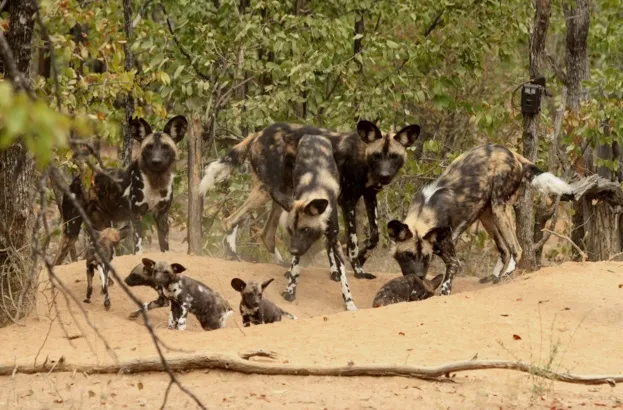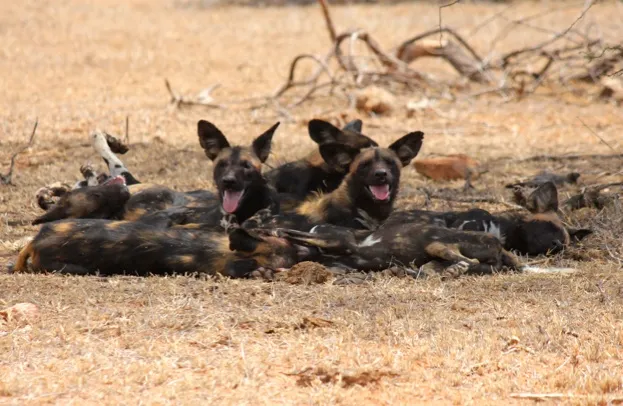A pair of wild dog pups in Zimbabwe © ZSL / Rosemary GrooResearchers monitoring wild dog packs in Kenya, Botswana and Zimbabwe discovered that the dogs spent less time hunting on hot days.
When the wild dogs attempted to raise pups during hot weather, fewer pups survived. This may have been because they received less food.
“Our study shows the truly global impact of climate change,” says lead author Professor Rosie Woodroffe.
“When most people think about wildlife in a changing climate, they think of polar bears clinging to melting ice, but even species who have adapted to tropical weather are being impacted by the changes to their environment.”

Adult dogs with pups in Zimbabwe © ZSL / Rosemary Groom
The research was led by scientists at the Zoological Society of London (ZSL), working with the Botswana Predator Conservation Trust and the African Wildlife Conservation Fund.
Over a combined 42 years of study in Kenya, Botswana and Zimbabwe, the scientists were able to monitor 73 packs of wild dogs using high-tech collars, which measured their behaviours.
African wild dogs are listed as Endangered on the IUCN Red List, and it is thought that there are fewer than 700 packs in the wild.

A pack of wild dogs in Kenya © ZSL / Helen O'Neill
“Worryingly, this new threat may be affecting wild dogs deep inside wildlife areas where we would expect them to be protected from human impacts,” says Woodroffe.
“With habitat fragmented and destroyed in cooler areas, wild dogs have literally nowhere to go. Sadly, climate change may bring extinction a step closer for this amazing species.”
ZSL is planning to conduct further research on how the impact of climate change on wild dogs can be mitigated.
Who is the fastest mammal? Find out how wild dogs compare to other mammals
Read the full paper in Journal of Animal Ecology

